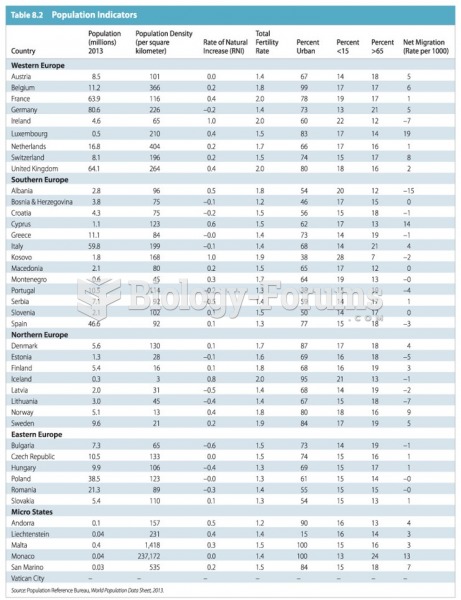Answer to Question 1
Answer: Since 1961, food production has increased substantially in Sub-Saharan Africa, but so has population. Sub-Saharan Africa is struggling to keep food production ahead of population growth. As a result, food production per capita has changed little in a half-century.
The threat of famine is particularly severe in the Sahel. Traditionally, this region supported limited agriculture. With rapid population growth, farmers overplanted, and herd size increased beyond the capacity of the land to support the animals. Animals overgrazed the limited vegetation and clustered at scarce water sources, leading to the depletion of the limited water resources.
Answer to Question 2
Answer: A taboo is a restriction on behavior imposed by social custom. Taboos are especially strong in the area of food. Relatively well-known taboos against consumption of certain foods can be found in the religious texts, including the Bible. These Biblical taboos were developed through oral tradition and by rabbis into the kosher laws observed today by some Jews. The Biblical food taboos were established in part to set the Hebrew people apart from others. Christians ignore the Biblical food injunctions which reflected their desire to distinguish themselves from Jews beginning two thousand years ago. Furthermore, as a universalizing religion, Christianity was less tied to taboos that originated in the Middle East.
Among the Biblical taboos is prohibition against consuming animals that do not chew their cud or that have cloven feet such as pigs, and seafood lacking fins or scales, such as lobsters.
Muslims share the taboo against consuming pork, in part because the religion originated in the same area as Judaism. It is thought that growing pigs will compete with humans for the scarce resources in the dry mediterranean region.
As a result of taboos against consuming pork, the number of pigs raised in different regions of the world varies sharply. Pigs are especially scarce in predominantly Muslim regions, such as southwestern Asia and northern Africa. On the other hand, China, where consumption of pork is embraced, has nearly one-half of the world's pig stock.







